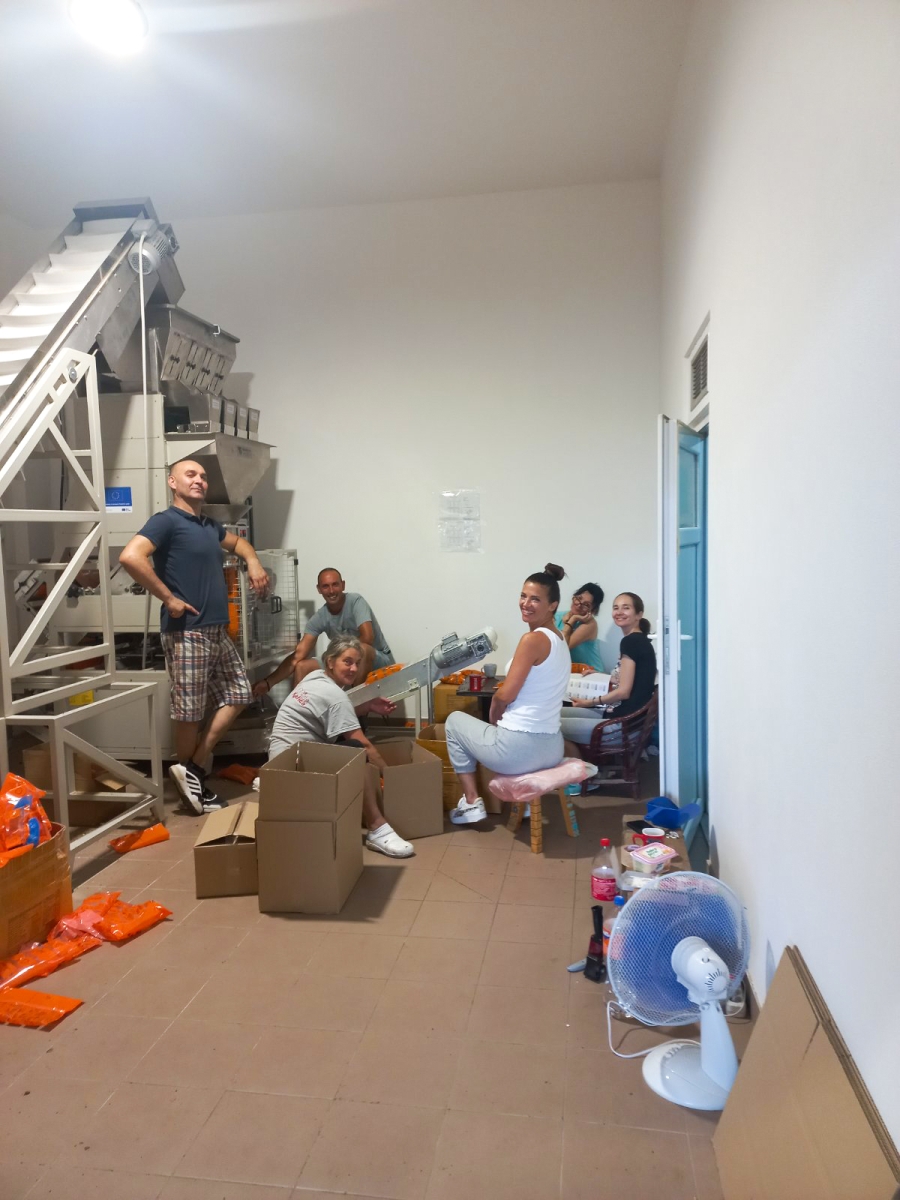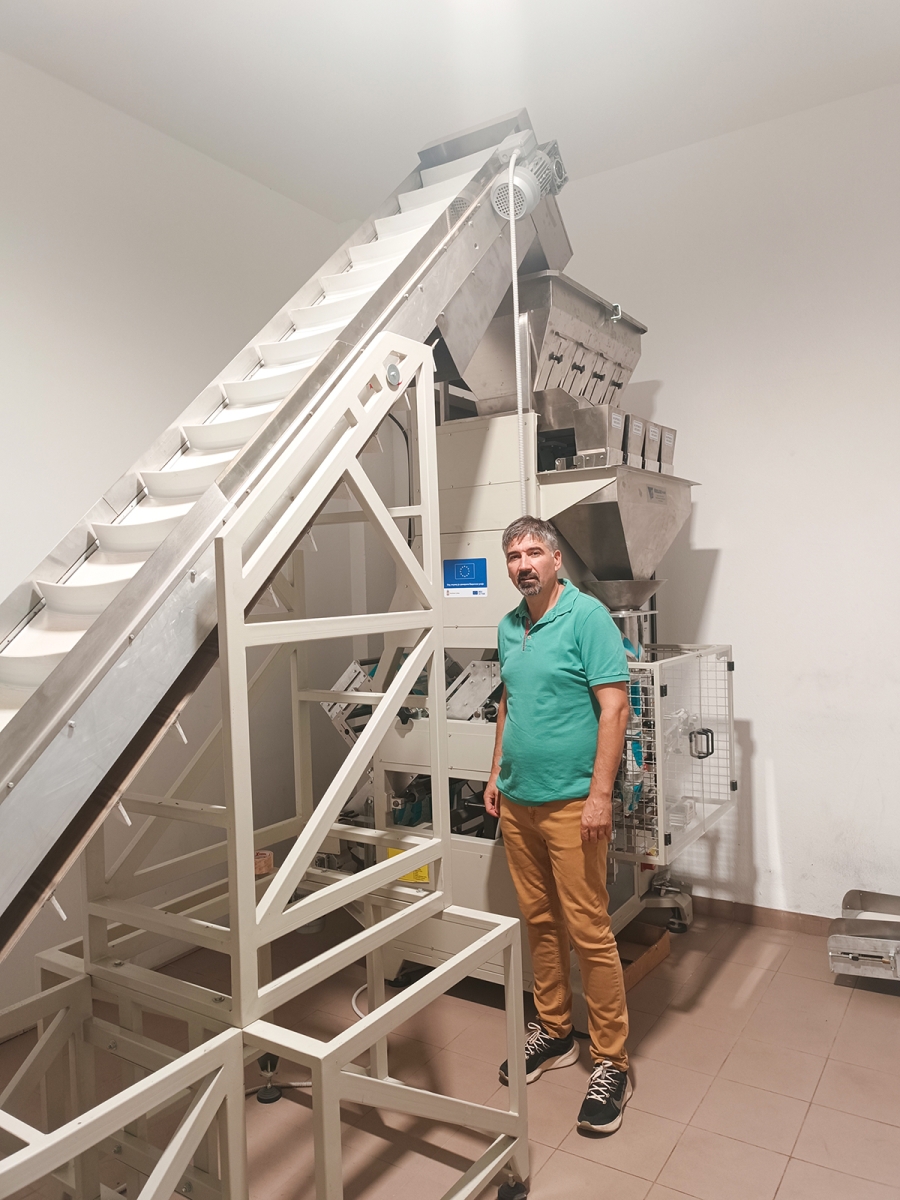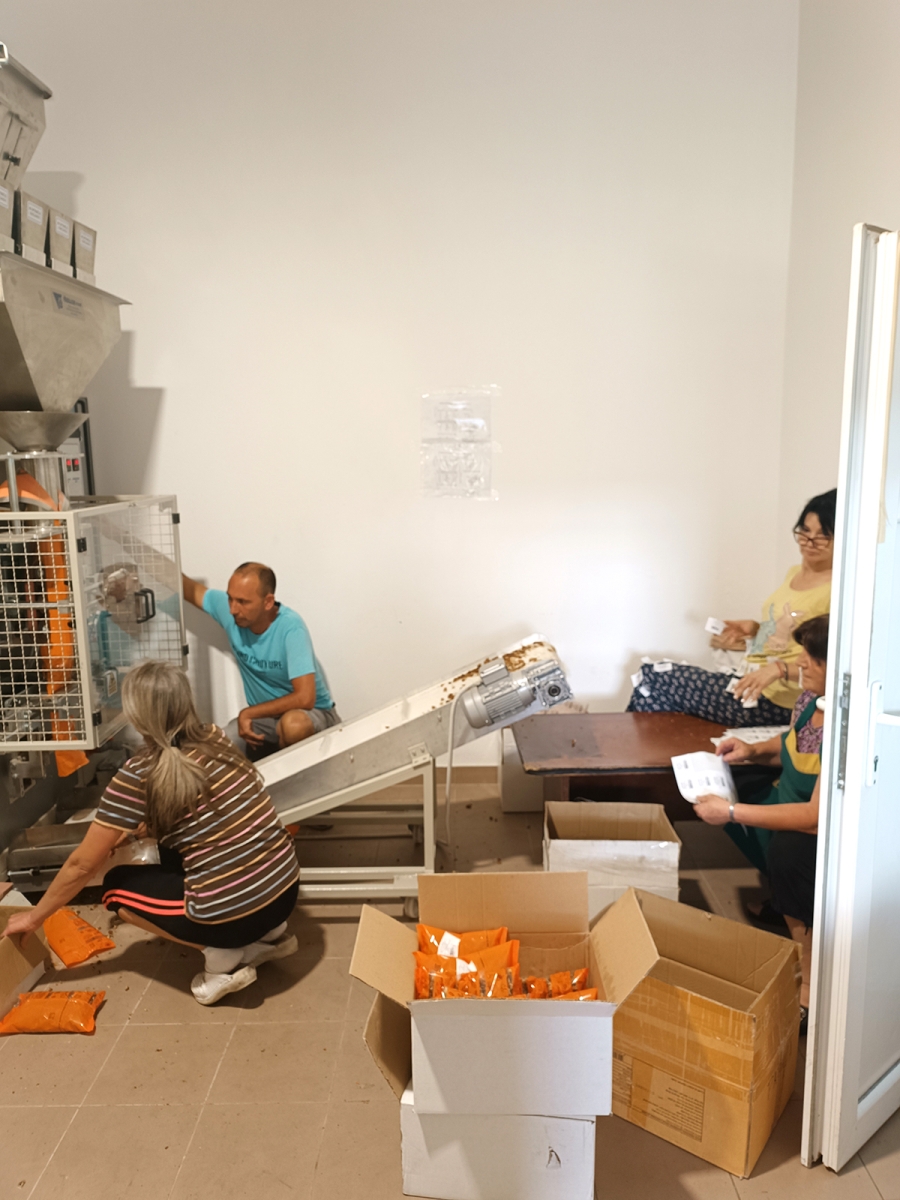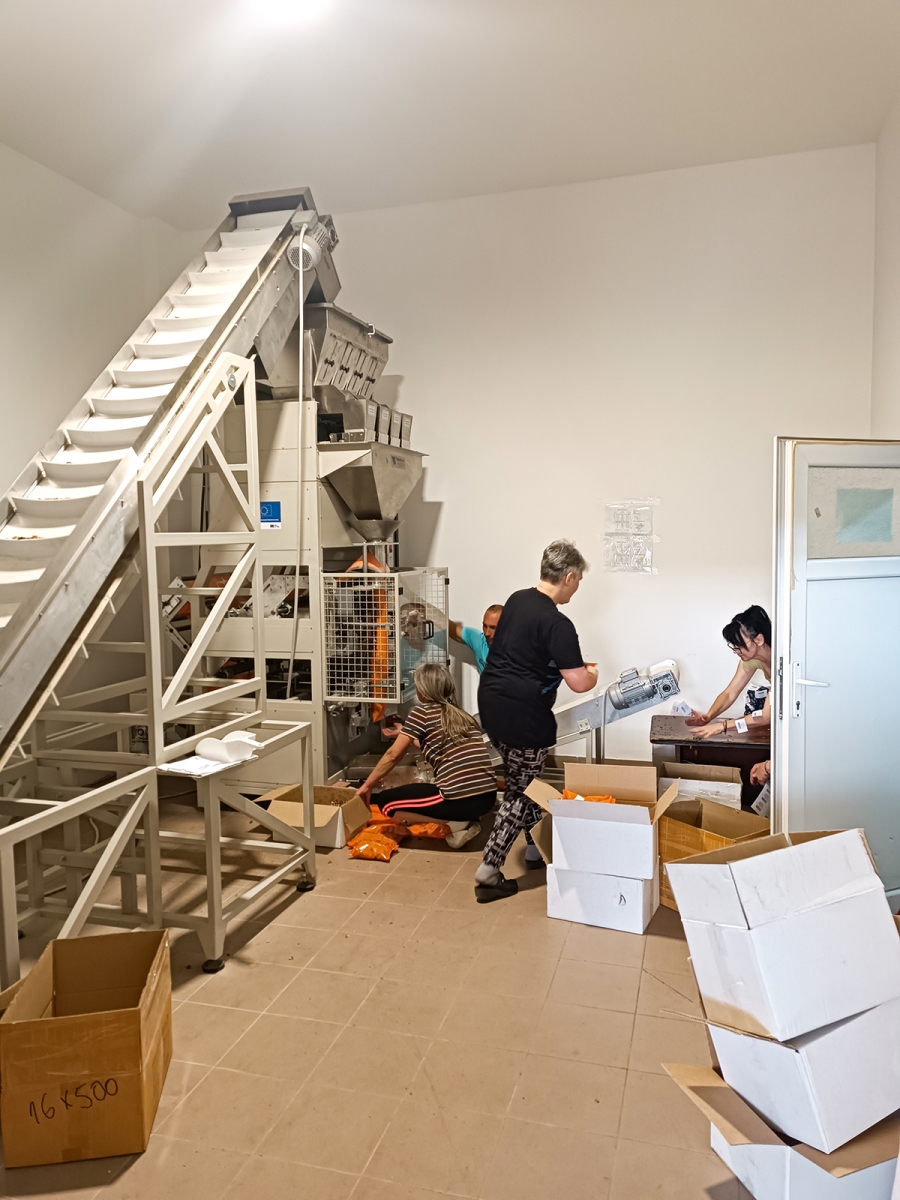Kraljevo, 3 December 2024
A World Without Prejudice: The Story of the "Paker Tim" Company
The conversation coincided with him developing a business idea inspired by healthy eating, namely a concept of bundled and mixed packaging of grain-based and powdered food products, as well as the production of whole-grain breadsticks. So from then on, in building his own business, it became crucial for Nenad not only to employ people with disabilities but also to ensure they could successfully perform tasks in the production process.
“One of the biggest challenges was adapting the work environment and job positions to the needs of our employees, many of whom were entering the workforce for the first time,” Nenad explains. The lack of funds for automated machines to streamline production also posed a hurdle, but this was overcome thanks to the European Union grant support of 32,508 Euros allocated through the EU PRO Plus Programme.
“With the acquisition of new automatic packaging machines, we’ve significantly eased the workload for our employees with disabilities,” says the owner of “Paker Tim.” “Increased productivity has led to higher sales, which provides us with greater security and market stability.” Thanks to this support, the company has created two new jobs, in addition to the existing thirteen, and continues to offer people with disabilities the opportunity to actively participate in the economy.
Beyond business success, “Paker Tim d.o.o.” remains committed to its community, donating food products to the public kitchen in Kraljevo.
Nenad’s advice to aspiring entrepreneurs is clear: “Explore all the types of support available to you, and don’t let prejudice influence your hiring decisions. Everyone deserves a chance.”
This initiative was part of a broader effort by the EU PRO Plus programme to strengthen local economic development through baking of micro and small enterprises in local self-governments across Šumadija and Western Serbia, and Southern and Eastern Serbia. The Public Call for Proposals for Procurement of Equipment and Introduction of Services for Entrepreneurs, Micro, and Small Enterprises resulted in 113 projects (out of 610 applications received) with a total value of 3,564,397 Euros. The EU provided 2,731,787 Euros to support enterprises focused on production and services, including information technology, architectural and engineering activities, health and social care, tourism, and maintenance and repair services. The initiative emphasised job creation proportional to grant size and corporate social responsibility benefiting local communities.



